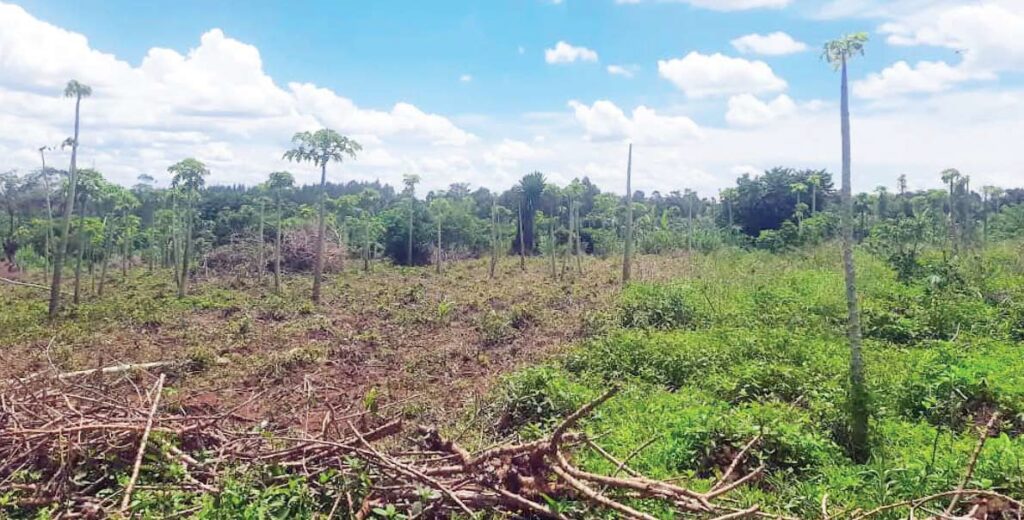Naigaga is distraught. She is homeless now. She recently lost her husband. After the burial of her husband, she was chased by her husband relatives from the land she has called home for the last many years. She does not have anything to her name as everything was taken away from her. Naigaga with her children have returned to her parents’ home.
Naigaga is one of the many women who face injustices when it comes to ownership of family property. Many women are in great pain caused by the same people who were meant to protect them.Naigaga’s situation is not common to only the married women but even unmarried women. In some spaces unmarried
women are not given portions when distributing family property.
15th October 2023 was set aside as the international day of rural women. This day is dedicated to the celebration of vital and invaluable contribution of rural women to the development of our nations. In Uganda, rural women provide 77% of labor in terms of agricultural production yet they own less than 38% of the land. This day is dedicated to addressing the challenges women face in their day to day life. One of the key issues is land tenure insecurity. Women like Naigaga usually have no say on how family property is distributed and used. They also face challenging in accessing land to use.
Efforts to uplift the state of the women in general have been made but there is still need for more action to change the status of the women as regards land rights. The government has taken the lead in ensuring that the women land rights are observed.
This has been through the current legal framework that aims to protect the rights of every woman. Uganda’s Constitution 1995 provides that all land in Uganda is owned by the people of Uganda under article 237. Women have a right to own property based on the above article. Article 26 of the same constitution restricts the taking of personal property to those necessary for public use or any other public interest and calls for the of prompt and fair compensation and a right of redress to rights holders.
It has been noted that the Constitution 1995 was the first step in ongoing reforms that have significantly strengthened protections for women’s rights by the current government. Article 21 of the constitution also prohibits discrimination based on gender and accords men and women the same status and rights. It also provides for the right of every person to own and use land.
The other law is the land Act that seeks to protect the interests of women as regards property ownership .There are sections of the Land Act that directly address gender, land and property rights. Section 38A of the Land (Amendment) Act 2004 provides for a spouse’s security of occupancy on family land. Section 39 requires spousal consent prior to entering into any land transaction concerning land on which the spouse resides on and uses for sustenance.
Before any land transaction is made the wife has to consent to that transaction. If the spouse does not consent, it is null and void according to the law. Section 28 of the Act specifically states that any decision that violates the lawful use of land by women, children, or persons with a disability shall be invalid. The amendments to the Land Act provide further protection for spouses by giving them the right to security of occupancy on family land. The Act also requires land management bodies and institutions to have female representation on Uganda Land Commission, District Land Boards and Area Land Committees.
The government should be commended for the steps taken. The above developments have greatly improved on the conditions of women in Uganda. There are still challenges. These include poor implementation of the above laws. We appreciate the presence of the enabling laws but more effort should be invested in the implementation phase through funding to make the necessary institutions function effectively.
The other challenge is some social and cultural norms. These tend to discriminate women when it to comes to land ownership and its use. There is need for a mindset change as regards the status of women in our communities. We need to rise up and collectively uplift the status of the women in our society.
This calls for a concerted effort by religious, cultural, opinion leaders to see that the rights of women are respected and honored. Any action taken by each one of us makes a difference in the lives of women like Naigaga. Let us stand up for them in every way we can. Each one of us has a role to play. What are you doing to promote the rights of the women




